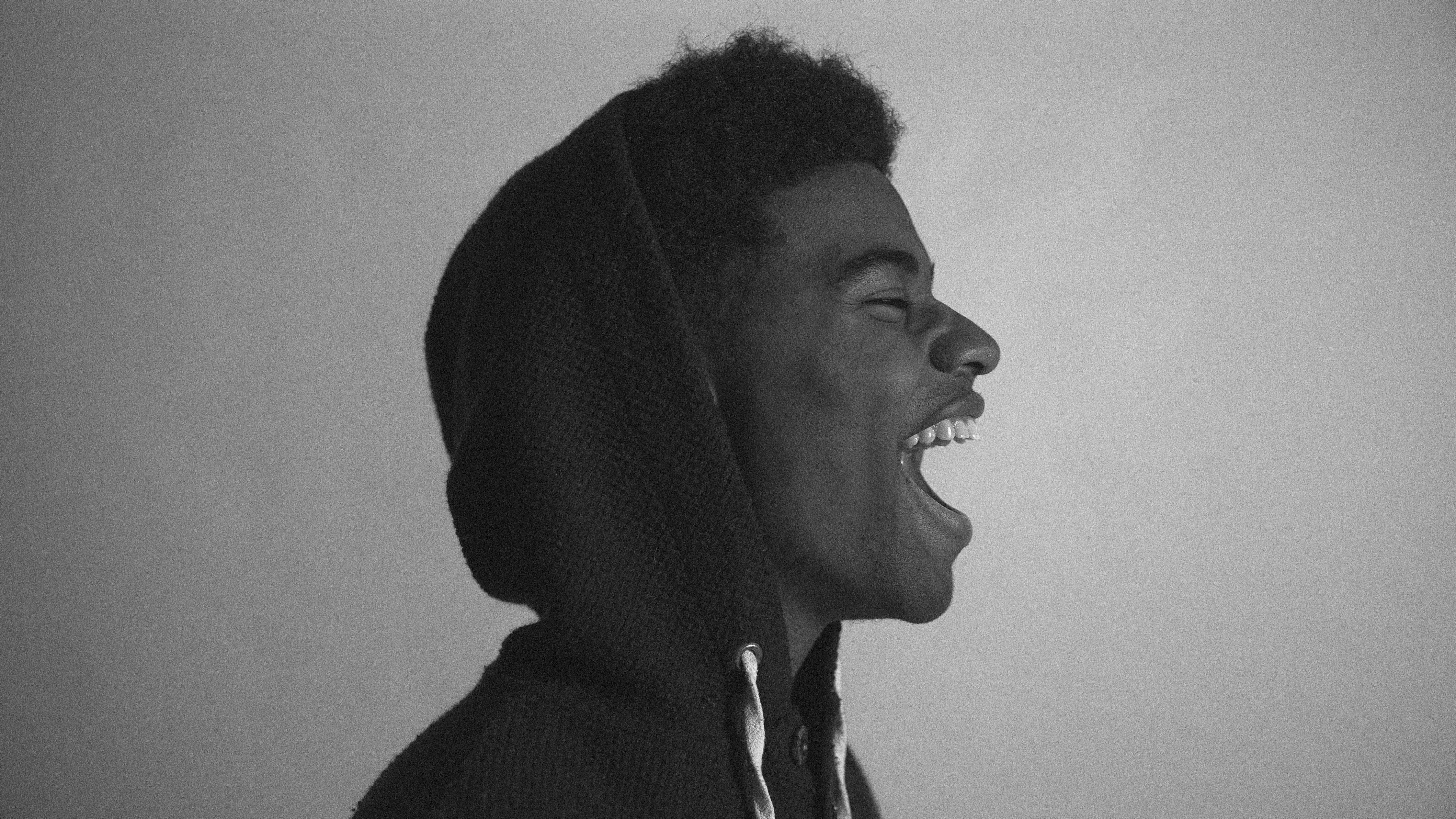Do We Code-Switch Our Laughter?
Laughing is not only contagious, but also contextual.

There’s a video called The Corporate Laugh by actress Raven Jenai that’s been trending across social media since November 2017, and for good reason. In the 37-second clip, which has garnered over 97,000 retweets and 212,000 likes on Twitter, Raven plays two nondescript co-workers, Bill and Jack. Jack sends Bill an email. Jack eagerly waits for Bill to open it. Then, Bill reads the funny email, chuckles in a stifled cadence and Jack laughs, too. At the end, Bill tells Jack “you are a hoot, that’s rich.”
Corporate Laughs Be Like pic.twitter.com/49kFcESeIC
— RavenJenai (@RavenJenai) November 29, 2017
You might, like Bill and Jack, have a controlled chuckle in a corporate meeting, but an explosive guffaw with friends at a restaurant. Which brings up an intriguing question: Do we have an inventory of laughs for various occasions? In other words, do we code-switch laughter?
Coined by linguists Jan-Petter Blom and John J. Gumperz in 1972, code-switching is how we alter our language to conform to various circles. In spoken language, with family or friends, you may roll your R’s or speak a blend of English and another language. At work, you might avoid cursing or use “standard” English with colleagues. People code-switch to varying degrees, depending on their societal position. There is much heated debate on whether to integrate code-switching teaching methods into classrooms to help multilingual students. There’s also discussion on the use of code-switching. Some argue code-switching is a necessary means for assimilation whereas others argue code-switching strips away one’s cultural identity to accommodate people with “higher” societal statuses. What is somewhat agreed upon is that we all code-switch depending on where we are.
Similarly, people unconsciously adjust their laughter to adapt to various social situations, according to Dr. Phillip Glenn, an Emerson College Communications professor and author of Studies of Laughter in Interaction. Glenn says that “we laugh in ways that are sensitive to context” in a systematic way. In the case of someone getting tickled at a funeral, “you cover your mouth and you spit a little bit because you know you are not supposed to be laughing. You could call it code-switching, but it’s not about culture, it’s about situation.”
He adds “identity categories” like race, gender, and geography are omnirelevant, which means they “are relevant potentially at any time as people are dealing with each other, but don’t evoke them all the time.” If two people were to laugh, “it’s not possible to know their being American or Methodist.”

*Dr. Betsy Rymes, a University of Pennsylvania sociolinguistics professor, argues identity categories play a greater role in shaping our laughter. Our “fine-grain interactions are building blocks” for power configurations in society, she says. These building blocks form language hierarchies that dictate if a certain laugh marks privilege or not.
“If you are someone who speaks a power code, like Queen’s English, you don’t have to have a wide-ranging [laughter] repertoire,” says Rymes. But “if you are a working-class person or person of color you have to be more flexible and need to be aware of code-switching your laughter,” because “a person in power has the luxury to be clueless because people will defer to their code.”
“We all have a range of different laughs that we use for different purposes and circumstances,” said Judi James, a body language expert, in a 2014 Mashable article. According to James, people change their laughs to form “social bonds” and intimacy. She gave the example of watching a TV comedy alone versus with friends: “if you’re alone, you’ll probably laugh out loud very little, if at all. But when you watch it with friends, you’ll laugh with them as a form of social bonding and shared experience.”

The failure to code-switch can break these social bonds. It also exposes a person’s lack of awareness about their culture or versatility to move within it. In the book Shifting: The Double Lives of Black Women in America by USA Today correspondent Charisse Jones and psychologist Dr. Kumea Shorter-Gooden, the authors provide research on how code-switching proficiency affects African-American women. Their research suggests that African-American women who cannot code-switch might be ridiculed for lack of fluency in African-American Vernacular English (AAVE) or standard English.
With laughter, for example, people might laugh in a polite, perfunctory manner in corporate offices because the rules within that world predicate a formal work code. If a person performed the same laugh with friends, instead of their usual knee-slapping laugh, the act could be interpreted as cold or distant. The social bond, in that moment, is broken.

Whether we consciously or unconsciously code-switch our laughter as a way to tune into our audience is still debated. What is clear, as Rymes summarizes, is “we all have a laugh repertoire.”
*Correction: An earlier version of this article misspelled Dr. Rymes’ last name.


















Follow us on Twitter to get the latest on the world's hidden wonders.
Like us on Facebook to get the latest on the world's hidden wonders.
Follow us on Twitter Like us on Facebook